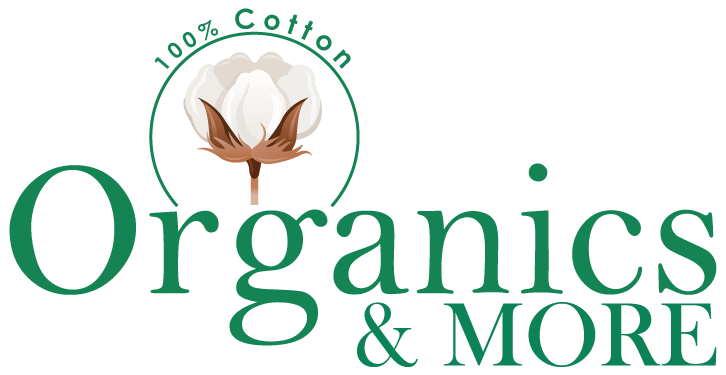
What Is Organic Cotton?
Organic cotton is grown by ecologically conscious farming practices that forbid the use of artificial chemicals, herbicides, and pesticides. Rather, crop security in Organic cotton cultivation is based on beneficial insects and natural processes.
Organic cotton, which is produced from non-genetically modified (non-GMO) seeds, is not only more ethically and environmentally sound, but it also meets stricter requirements, improving circumstances for both farmers and ecosystems.
What Is Conventional Cotton?
“Conventional cotton” refers to cotton that is not Organic and is grown using conventional agricultural practices, which frequently involve the use of artificial chemicals like fertilizers, pesticides, and herbicides. This is the cotton that is commonly known today.
It is noteworthy to mention that genetically modified (GMO) seeds are typically used to cultivate conventional cotton. Therefore, compared to Organic cotton, conventional cotton can be produced more cheaply and widely.

Why Is Organic Cotton Bedding Better than Conventional Cotton?
We at Organics & More have dedicated ourselves to using the best 100% Organic cotton for our home goods since the beginning. It significantly impacts the world we live in, the people who manufacture the product, and you as well as how you experience it.
Here, we outline the main justifications for using Organic cotton in the production of our bath and bedding products. You won’t want to surround yourself with anything else after reading this.
Effects of Cotton Farming on Employee and Farmer Health
As was previously mentioned, synthetic insecticides and pesticides are used extensively in conventional cotton farming. Farmers and agricultural laborers may experience severe health effects from these toxins. Numerous conditions, such as skin illnesses, respiratory issues, certain malignancies, and brain damage, can result from prolonged exposure.
Because Organic cotton cultivation avoids the use of synthetic fertilizers and pesticides, farmers and other agricultural workers face a significantly lower risk of chemical exposure-related illnesses. Safer working conditions result from this. Organic cotton farmers are able to work longer because they face fewer health problems than conventional cotton producers.
Cotton Farming’s Effect on Consumer Health
Despite being washed and having most of the synthetic chemicals used during farming removed, traditional cotton may still include some chemical residue in the cotton fabric. Some people may experience allergic reactions, rashes, and skin irritation as a result of this, particularly those with sensitive skin.
Because no toxic chemicals were employed in the first place while growing, Organic cotton goods are devoid of chemical residue. For Organic & More’s customers, especially those with sensitive skin, allergies, or chemical sensitivity, this makes Organic cotton products a safer choice.
Cotton farming’s Effects on the Environment
Water Pollution: One major cause of water pollution is the widespread use of artificial fertilizers and pesticides. These substances pose hazards to the health of people and animals because they can seep into groundwater or runoff into bodies of water, altering aquatic ecosystems.
Soil Degradation: Monoculture and extensive chemical use are two intensive conventional cotton growing techniques that can harm the health of the soil. Long-term soil fertility is decreased by the overuse of synthetic fertilizers, which also deplete Organic matter, disturb soil microbiology, and cause soil erosion.
Loss of Biodiversity: In typical cotton growing, pesticides are applied without distinction between beneficial insects and pests. The balance of the local ecology may be disturbed by the mass extinction of non-target species, which would reduce biodiversity. This deficiency in biodiversity may cause the ecosystem to be less adaptable to changes and may even cause the extinction of some species.
Water Consumption: Because cotton requires a lot of water, it is frequently grown in areas with limited water supplies. Large volumes of irrigation water are needed for conventional cotton production, which strains available water supplies and adds to water depletion in places already experiencing water stress.
Air pollution can be caused by pesticides and herbicides used in cotton production. These substances have the potential to harm wildlife and even make their way up the food chain when they are dispersed into the larger environment by wind and rain.
Increased greenhouse gas emissions: synthetic fertilizers used in conventional cotton farming release nitrous oxide—a greenhouse gas approximately 300 times more potent than carbon dioxide—contributing to global warming.
These are major environmental concerns. To give a side-by-side contrast of the impact Organic cotton farming has, we examine the same topics. Note how Organic cotton farming practices not only reduce the environmental toll, but in many ways, these practices provide beneficial roles for the environment.
The Benefits of Organic Cotton
As you can see by now, Organic cotton is produced with greater attention to detail and skill than conventional cotton. It is nearly incalculable in its worth. Products made with Organic cotton may cost a little more than those made of conventional cotton, but this is because Organic cotton has lower production costs and doesn’t harm people or the environment.
This is one of the main reasons it’s so important for companies to use Organic cotton, encourage Organic cotton production, and assist in educating customers about prudent financial management.
We hope you won’t want to sleep on bedding that doesn’t meet Organic standards, because we wouldn’t want to.
These represent serious environmental issues. We look at the same themes to provide a side-by-side comparison of the effects of Organic cotton farming. Observe how Organic cotton farming methods not only lessen their negative effects on the environment but also play a number of advantageous roles for the environment.
